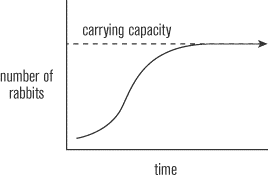When I think about global warming, I relive the memories when I witnessed melting glaciers and rising water levels flooding villages; however, most people in America haven’t been able to see these effects first hand. Consequently, creating action to inhibit emissions and start helping the environment is hard because most people can’t connect the news headlines to personal experiences. This is where writers and short stories come into play. In the introduction to the collection of short stories titled I’m With The Bears, Bill Mckibben writes, “Of course, in the end, the job of writers is not to push us in some particular direction; it’s to illuminate. To bear witness” (4). By using the word “illuminate” Mckibben almost personifies the word into meaning that it gives life to a cause; that these writers are able to grab the soul of their audience and make them passionate about global warming simply based on fiction. This powerful writing is strewn throughout the book, but the story which burns brightest to me is Time Capsule Found On The Dead Planet by Margaret Atwood.
This short story by Margaret Atwood should be a required story for everyone in America to read and here’s why. I believe that this story puts mankind and humanity, as we know it today, in the perspective of an outsider. Also, it allows the reader to relate to the people in the story, allowing the reader to create emotion. First off, when describing the first age, Atwood describes our creation of Gods by saying, “We carved them out of wood; there was still such a thing as wood, then. We forged them from shining metals and painted them on temple walls” (191). By opening up the story and using words like “wood”, “shining metals”, and “temple walls” it immediately makes us think of ourselves. Not only is this an accurate account of what humans used to do, but it makes the reader feel as if they are looking in the mirror. This is essential in creating a personal experience because without this mirror-like effect, it is impossible to make the reader feel emotion if they can’t see themselves in the world described in the story.
During the second and third age, Atwood sets up modern society and humanity. In the second age, Atwood describes how money is created and, even though it is still very mysterious, it is thought to have had special powers. Then, in the third age, Atwood goes on to describe how, “It was all-powerful, and out of control. It began to talk…It created greed and hunger…towers of glass rose at its name, were destroyed and rose again” (192). By describing money as “all-powerful”, being able to “talk”, and how it created “greed and hunger”, Atwood alludes to money as a God. This allusion is essential to the “illumination” that writers are trying to accomplish. By making money appear as a God, it helps the reader reflect on society and its issues. In day-to-day life, most people think of money as a necessary component, not an issue, but when we are able to remove ourselves and look down upon society through this story, we can observe all its issues through a clear lens. Contine reading →






